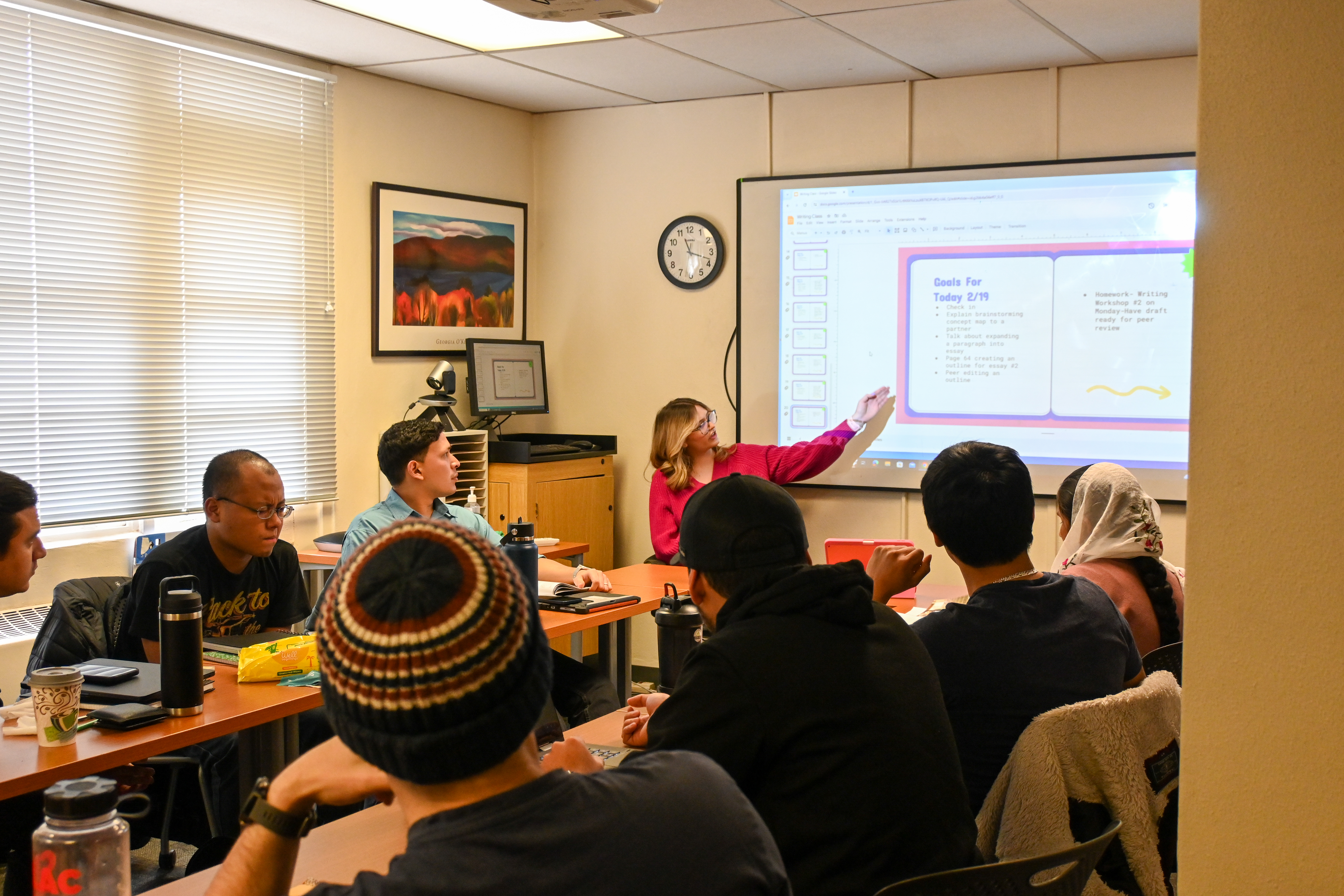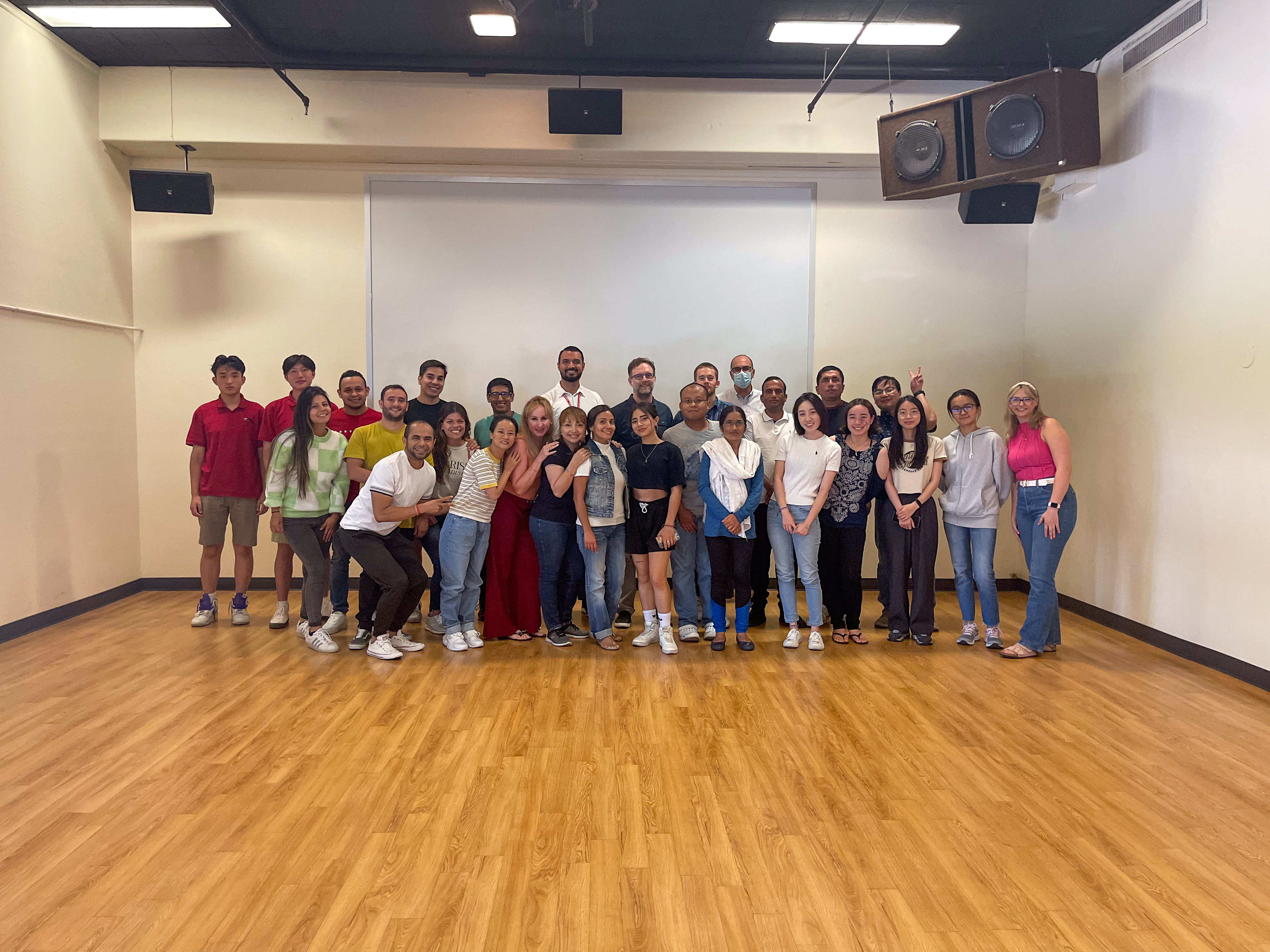Policies
Apply NowClass Attendance Policy
Class attendance is important for improvement in English. CELAC is an intensive English program, which means that full-time students will study English at least four hours each day, Monday through Friday. Students learn English faster in an intensive English program. If a student misses a lot of class, the goal of the intensive program is lost. Several negative things happen if a student has poor attendance: The student hurts his/her own progress by having fewer practice opportunities. The student may disrupt the learning opportunities of other students in the class. MOST IMPORTANTLY, CELAC is required by the Department of Homeland Security of the United States to monitor student attendance and to report any F1 student who is not attending classes full-time. If an F1 student is dropped from a CELAC class for violation of the attendance policy, CELAC must terminate the student’s F1 record in the government’s Student and Exchange Visitor Information System (SEVIS) and the student will be illegally present in the US. The student would be required to leave the US immediately. For the reasons discussed above, all CELAC students are required to observe the following CELAC Attendance Policy: If you are sick and need to miss class, you may get a written doctor’s excuse by seeing a doctor at the UNM Health Center, or by seeing another health care provider of your choice. Please provide this medical excuse to the Academic Manager. If you provide a written doctor’s excuse, CELAC records an “excused absence” for you. If you have to miss many classes due to illness, please see the Academic Manager. Note on COVID-19: If you believe you are experiencing symptoms of Coronavirus check your symptoms on the CDC website. If you confirm that your symptoms are on the list, stay in your room/apartment and first call for information about what to do (don’t go straight to the hospital or to SHAC). If it is during the weekday business hours, call SHAC at 202-277-3136. After hours, you can call the SHAC emergency number at 505-260-7070. If you do not provide a doctor’s excuse for your absence, CELAC will record it as an “unexcused absence.” CELAC permits a student to have 3 unexcused absences in each class during a 16-week semester and during the 8-week summer term. If you have over 3 unexcused absences in a class, you won’t be permitted to return to class. You will be dropped from that class. CELAC permits a student to have 3 excused absences in each class during a 16-week or 8-week term. Any excused absences after the 3 permitted will be counted as an unexcused absence. If you have over 6 total absences in a class (3 being the maximum amount of excused absences) in the Spring, Fall, or Summer terms, you will not be permitted to return to class. You will be dropped from that class. If you are dropped from a CELAC class, CELAC must report to the Department of Homeland Security that you are no longer in legal status because you are no longer a full-time student. At that time, you would need to apply for reinstatement of your F1 status and transfer to another institution or leave the United States and return home because you have violated F1 status requirements. As we monitor student absences, we will follow this procedure: A student will receive a Warning of Unexcused Absences via email from his or her instructor when the student reaches the 2nd (second) unexcused absence in any class. A copy will be placed in the student’s file. The student must then reply to the instructor’s notification indicating he or she understands the policy and that he or she will no longer be in legal F1 immigration status and will have to apply for reinstatement of F1 status or leave the US if over 3 unexcused absences or over 6 total absences are accrued.
Tardy Policy
All students are expected to arrive to class on time. Being late for class may be considered rude and impolite, especially if a student is often late. Tardiness disrupts the learning environment and is discouraged. Students arriving late for a class or leaving early are considered tardy. Continued excessive tardiness or absences in any class could lead to disciplinary action up to and including expulsion. At CELAC, a student will receive one unexcused absence for every 4 times he or she comes late to class. If a student is more than 20 minutes late for class, he or she will be considered absent. An emergency or an unexpected problem may happen on a certain day that causes a student to be late. These kinds of things are unpredictable and may happen to anyone occasionally. This is not the problem we are concerned about. We are concerned about a habit of being late for class many times, which interrupts the class.
CELAC Payment Policy
Full CELAC tuition payment must be completed by the end of the second week of classes. Failure to pay by the end of the second week will result in suspension from classes beginning the third week of the semester. Suspension from classes can affect the student F-1 visa status and can result in visa termination. Absences due to suspension will be considered unexcused.
Refund Policy
The CELAC refund policy and deadlines follow the same rules as the University of New Mexico. This is available to view on the UNM website at: Click on the link for Refund Information. The last day to drop a 16-week class (fall or spring semester) and receive a 100% tuition refund is the end of the 3rd week of classes. The last day to drop an 8 week (summer) class and receive a 100% tuition refund is the end of the 2nd week of classes. After these dates, there is no refund available unless by prior arrangement and agreement, or for unusual circumstances, such as a medical or family emergency. Students who are expelled from the CELAC program for reasons described in the Policy for Expulsion (Section W above) will not receive a refund.
Policy for Expulsion
A student may be dropped from CELAC classes and not be given permission to return to CELAC classes during a semester (or for subsequent semesters) if he or she: Has excessive absences from class, violating the CELAC attendance policy, or Is abusive and uncooperative with other students, with teachers, or with other CELAC or GEO staff members.



